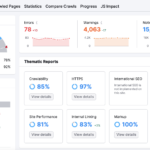July 3, 2024 by Admin
In today’s fast-paced world, health screenings are paramount in maintaining overall well-being and early detection of potential health issues. Regular health screenings are essential to preemptively identify conditions that may not yet present any symptoms but could lead to serious health complications if left undetected. In this comprehensive article, we delve into the various types of health screenings and their significance in promoting a healthier society.
Understanding Health Screenings
Health screenings are medical tests or exams performed on individuals who may not necessarily show symptoms of a disease. These tests are critical in identifying potential health problems early, allowing for timely intervention and management. The type and frequency of health screenings vary depending on factors such as age, gender, medical history, and lifestyle choices.
Types of Health Screenings
1. Cardiovascular Screenings
Cardiovascular disease is one of the leading causes of death globally. Cardiovascular screenings are designed to detect risk factors that may lead to heart disease, stroke, and other related conditions. Common cardiovascular screenings include:
- Blood Pressure Measurement: Regular monitoring of blood pressure helps identify hypertension, a major risk factor for heart disease and stroke.
- Cholesterol Tests: Lipid profile tests measure cholesterol levels, helping to assess the risk of heart disease.
- Electrocardiogram (ECG): This test records the electrical activity of the heart and can detect arrhythmias and other heart conditions.
2. Cancer Screenings
Early detection of cancer significantly improves treatment outcomes and survival rates. Different types of cancer screenings are recommended based on age, gender, and risk factors:

- Mammograms: Used to detect breast cancer in women, typically recommended annually for women over 40.
- Pap Smears and HPV Testing: Essential for detecting cervical cancer and human papillomavirus (HPV) infections in women.
- Colonoscopy: Recommended for individuals over 50 to detect colorectal cancer and polyps.
- Prostate-Specific Antigen (PSA) Test: Helps in detecting prostate cancer in men.
3. Diabetes Screenings
Diabetes is a chronic condition that can lead to severe complications if not managed properly. Diabetes screenings involve:
- Fasting Blood Sugar Test: Measures blood glucose levels after fasting for at least eight hours.
- HbA1c Test: Provides an average blood glucose level over the past two to three months, helping to diagnose and monitor diabetes.
4. Bone Density Tests
As individuals age, the risk of osteoporosis and bone fractures increases. Bone density tests are crucial for:
- Dual-Energy X-ray Absorptiometry (DEXA): Measures bone density and helps in diagnosing osteoporosis, particularly in postmenopausal women and older adults.
5. Infectious Disease Screenings
Detecting infectious diseases early can prevent their spread and allow for timely treatment. Key infectious disease screenings include:
- HIV Tests: Detects the presence of HIV antibodies or antigens in the blood.
- Hepatitis Screening: Identifies hepatitis B and C infections, which can lead to liver damage if untreated.
- Tuberculosis (TB) Test: Skin or blood tests to detect TB infection, particularly in high-risk populations.
6. Mental Health Screenings
Mental health is a crucial aspect of overall well-being. Mental health screenings help identify conditions such as:
- Depression: Standardized questionnaires and assessments to diagnose depression.
- Anxiety Disorders: Evaluations to identify various anxiety disorders.
- Substance Abuse: Screening tools to detect alcohol or drug dependency.
The Importance of Regular Health Screenings
Early Detection and Prevention
Health screenings play a pivotal role in the early detection of diseases. Early diagnosis often results in more effective treatment and better outcomes. For instance, detecting cancer at an early stage can significantly increase the chances of successful treatment and recovery. Similarly, identifying cardiovascular risk factors early can help manage them before they lead to severe complications.
Monitoring and Managing Chronic Conditions
For individuals with existing chronic conditions, regular health screenings are vital for monitoring disease progression and effectiveness of treatment. For example, diabetic patients need regular blood sugar tests to manage their condition and prevent complications such as kidney disease and neuropathy.
Reducing Healthcare Costs
Preventive health screenings can lead to significant cost savings by avoiding the need for extensive treatments and hospitalizations that arise from advanced-stage diseases. Early intervention and management of conditions are generally less expensive and less intensive than treating diseases that have progressed.
Improving Quality of Life
By identifying and managing health issues early, screenings contribute to a higher quality of life. Individuals can maintain better health, remain active, and avoid complications that could impede their daily lives.
Personalized Healthcare
Health screenings allow for personalized healthcare plans tailored to an individual’s specific needs. Doctors can recommend lifestyle changes, medications, or other interventions based on screening results, providing a more customized approach to health and wellness.
Specialized Health Screenings
1. Genetic Screenings
Genetic screenings are used to identify mutations or alterations in genes that may predispose individuals to certain inherited diseases or conditions. These screenings are particularly important for those with a family history of genetic disorders. Key types of genetic screenings include:
- Carrier Screening: Identifies individuals who carry a gene for a specific genetic disorder, such as cystic fibrosis or sickle cell anemia, even if they do not show symptoms themselves.
- Prenatal Genetic Testing: Performed during pregnancy to detect genetic abnormalities in the fetus, such as Down syndrome.
- Newborn Screening: Tests performed shortly after birth to identify genetic or metabolic conditions that could affect a newborn’s long-term health.
2. Vision and Hearing Screenings
Regular vision and hearing screenings are essential for detecting impairments that can affect quality of life and daily functioning. These screenings are particularly important for children, as early detection and treatment can prevent long-term developmental issues.
- Vision Screenings: Assessments such as visual acuity tests, eye alignment tests, and color blindness tests help in detecting vision problems like myopia, hyperopia, and astigmatism.
- Hearing Screenings: Audiometric tests evaluate an individual’s ability to hear different frequencies and intensities of sounds, identifying hearing loss or auditory processing disorders.
3. Respiratory Screenings
Respiratory screenings are crucial for identifying chronic respiratory conditions and assessing lung function. These tests are particularly important for individuals with a history of smoking, exposure to environmental pollutants, or respiratory symptoms.
- Spirometry: Measures the amount and speed of air a person can inhale and exhale, helping to diagnose conditions like asthma, chronic obstructive pulmonary disease (COPD), and other lung diseases.
- Chest X-Rays: Provide images of the lungs and chest cavity, used to detect abnormalities such as infections, tumors, or fluid accumulation.
4. Sexual and Reproductive Health Screenings
Screenings for sexually transmitted infections (STIs) and reproductive health conditions are vital for maintaining sexual health and preventing complications.
- STI Screenings: Tests for infections such as chlamydia, gonorrhea, syphilis, and HIV are crucial for sexually active individuals.
- Pelvic Exams and Ultrasounds: Used to detect abnormalities in the reproductive organs, such as ovarian cysts, fibroids, and other conditions affecting the uterus and ovaries.
5. Skin Cancer Screenings
Skin cancer screenings are essential for early detection of melanoma and other skin cancers. These screenings involve:
- Visual Skin Exams: Dermatologists examine the skin for any unusual moles, spots, or growths that could indicate skin cancer.
- Biopsies: If a suspicious area is found, a biopsy may be performed to determine if it is cancerous.
The Role of Technology in Health Screenings
Advancements in technology have significantly enhanced the effectiveness and accessibility of health screenings. Innovations such as telemedicine, wearable devices, and artificial intelligence (AI) have revolutionized the way screenings are conducted and monitored.
- Telemedicine: Allows for remote consultations and screenings, making healthcare more accessible to individuals in remote or underserved areas.
- Wearable Devices: Devices like smartwatches and fitness trackers can monitor vital signs and detect irregularities, prompting users to seek medical advice.
- Artificial Intelligence: AI algorithms can analyze medical data and imaging results with high accuracy, assisting in the early detection of conditions like cancer and heart disease.
Challenges and Considerations in Health Screenings
While health screenings offer numerous benefits, they also present certain challenges and considerations that need to be addressed.
1. False Positives and Negatives
Screenings are not always 100% accurate, and false positives (indicating a problem when there isn’t one) and false negatives (missing an existing problem) can occur. These inaccuracies can lead to unnecessary anxiety, additional testing, or missed diagnoses.
2. Accessibility and Cost
Not everyone has equal access to health screenings due to factors such as location, socioeconomic status, and healthcare coverage. Efforts to make screenings more affordable and accessible are crucial for ensuring that all individuals can benefit from early detection and preventive care.
3. Informed Consent and Privacy
Ensuring that individuals understand the purpose, risks, and benefits of screenings is essential for obtaining informed consent. Additionally, protecting the privacy and confidentiality of medical information is a critical concern in the era of digital health records.
Promoting Health Screenings: A Collaborative Effort
Promoting regular health screenings requires collaboration among healthcare providers, policymakers, and the community. Education and awareness campaigns can help inform the public about the importance of screenings and encourage proactive health management.
Healthcare Providers
Healthcare providers play a key role in recommending and conducting screenings based on individual risk factors and medical history. Regular check-ups and patient education can ensure that individuals stay informed about necessary screenings.
Policymakers
Policymakers can support health screenings through legislation and funding for public health programs. Initiatives to provide free or low-cost screenings, particularly in underserved communities, can help bridge the gap in healthcare access.
Community Outreach
Community organizations and public health campaigns can raise awareness about the importance of health screenings. Outreach programs, health fairs, and mobile screening units can bring services directly to the community, increasing participation in preventive healthcare.
Conclusion
Health screenings are a fundamental component of preventive healthcare, enabling early detection and management of potential health issues. By understanding the different types of screenings available and their importance, individuals can take proactive steps towards maintaining their health and well-being. Regular screenings, supported by advancements in technology and collaborative efforts, have the potential to significantly improve health outcomes and quality of life for individuals and communities alike.







